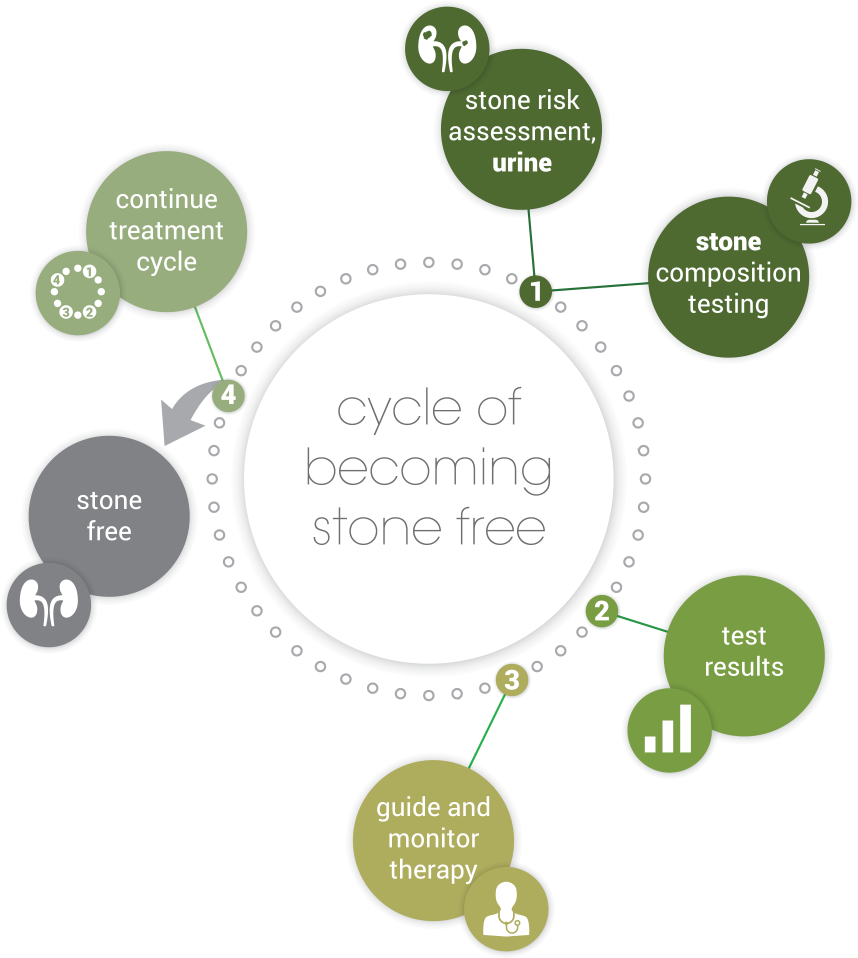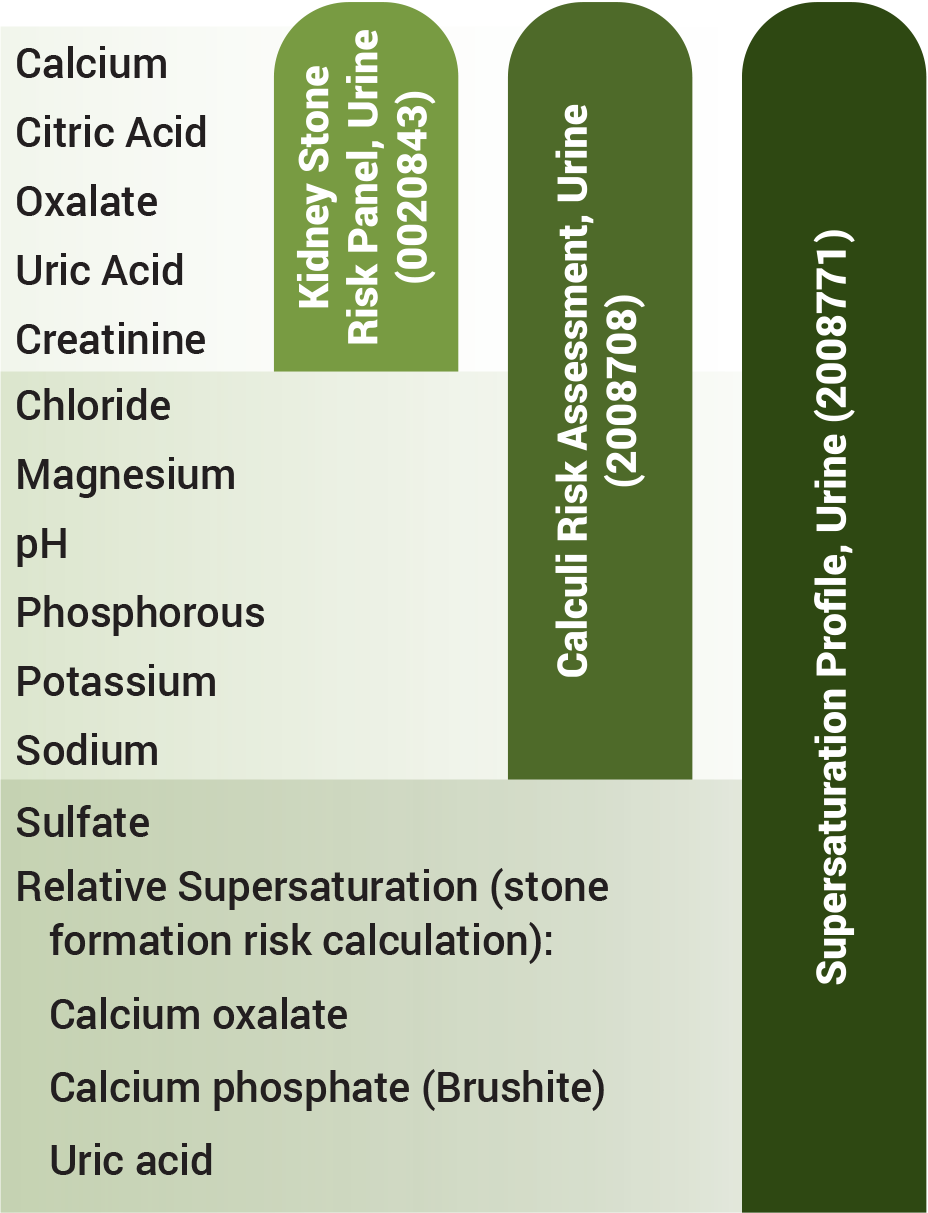ARUP offers a comprehensive menu to assess patients with kidney stone disease.

Calculi (stone) testing specializes in two areas that provide valuable information to determine appropriate treatment and course of patient care:
- Assessing and monitoring the risk of stone formation (urine studies)
- Evaluating stone composition
Epidemiology
- It is estimated that 1 in 10 individuals will develop kidney stones in their lives.
- The risk of kidney stones is around 9% in women and 11% in men in the United States.
- For those individuals who have experienced kidney stones, there is a 50% increased risk of additional development within 5 to 7 years.
- Incidence of this disease is rising and estimated to cost $5.3 billion per year in healthcare dollars.
Test Information

Benefits of Calculi Testing at ARUP
- ARUP has designed efficient urine panels that assess stone-forming risk, monitor the course of therapy, and reduce testing expenses (ARUP test codes 2008771, 2008708, 0020843).
- ARUP has developed in-house technology for stone processing, which reduces errors and decreases turnaround time.
- A full stone analysis with a photo is available through ARUP’s enhanced reporting system.
- Enhanced graphical reports are available for Calculi Risk Assessment (2008708), Supersaturation Profile (2008771), and Calculi (Stone) Analysis with Photo (2005231).
















